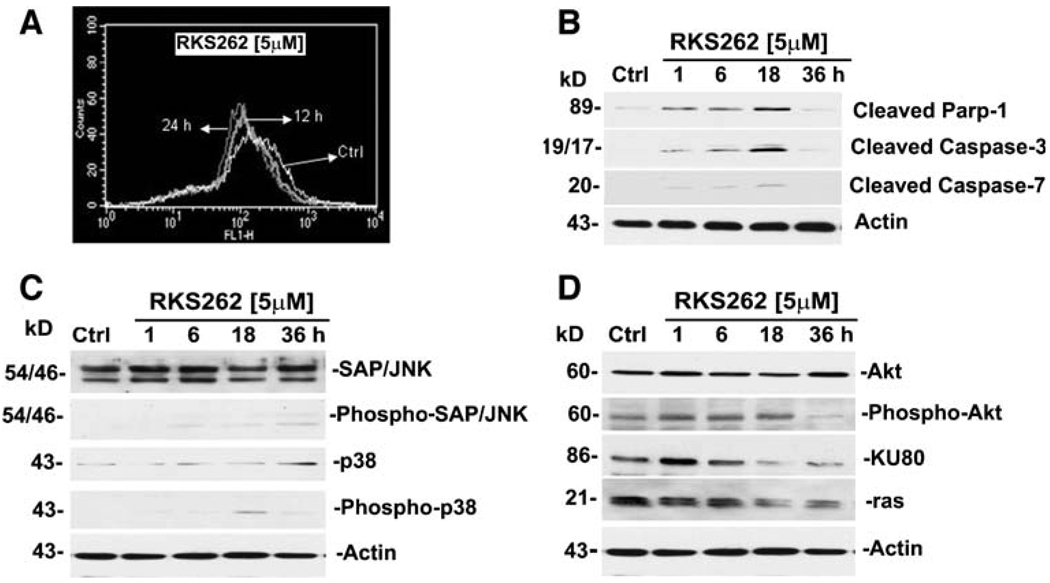Fig. 4.
RKS262 causes apoptosis in OVCAR-3 platinum-resistant ovarian cancer cells. A Mitochondrial membrane depolarization analysis: OVCAR-3 cells were treated for 12 or 24 h with vehicle or 5 µM RKS262 and stained with DiOC18(3) as described (Materials and Methods). Fluorescence of the single-cell population was measured by flow cytometry and the transmembrane depolarization potential of the single-cell populations plotted. Ten thousand cells were analyzed in each sample. B Caspase activation following RKS262 treatment: OVCAR-3 cells were treated with vehicle or 5 µM RKS262 for 1, 6, 18 or 36 h. Analysis of the expression of proteins in the lysates of treated and untreated cells was carried out by Western blot analysis as described (Material and Methods). Primary antibodies against activated caspases-3, -7 and inactivated/cleaved PARP-1 were used. C Expression of pro-apoptotic MAPK in OVCAR-3: Cells were treated with vehicle or 5 µM RKS262 for 1, 6, 18 or 36 h. Analysis of the expression of proteins in the lysates of treated and untreated cells by Western blot analysis was carried out as described (Material and Methods) using primary antibodies against pro- and activated/phosphorylated (P-) SAP/JNK and p38. D Inactivation of survival signaling proteins in OVCAR-3: Cells were treated with vehicle or 5 µM of RKS262 for 1 6, 18 or 36 h. Analysis of the expression of proteins in the lysates of treated and untreated cells by PAGE/western blot analysis was carried out using primary antibodies against ras, KU80, pro- and activated/phosphorylated Akt proteins

